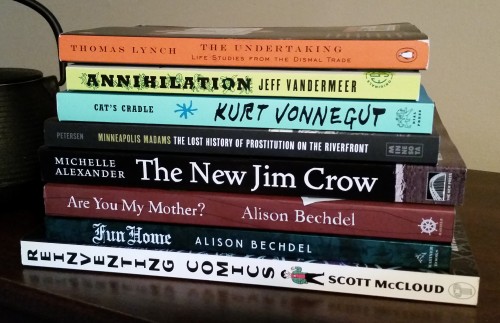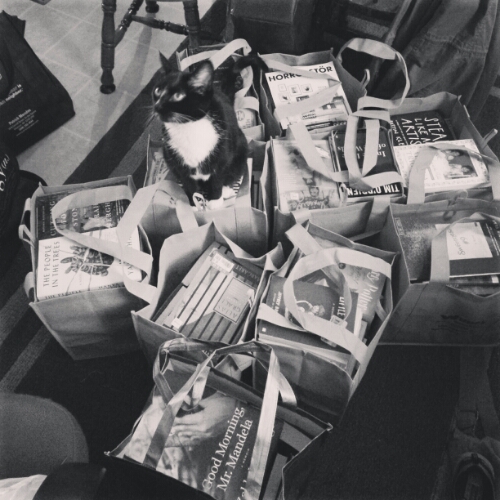This weekend, a friend asked me for a recommendation for a happy book. As I thought through the nonfiction I’ve read recently, I realized that most of it has been kind of depressing. But that’s one of the reasons I love good nonfiction — authors often tackle stories that are hard to read but need to be told.
The two books I’m sharing today, Unbroken by Laura Hillenbrand and Detroit by Charlie LeDuff, are difficult stories for entirely different reasons, but are both books that I highly recommend — especially as audio books thanks to great narrators.
Unbroken by Laura Hillenbrand
In boyhood, Louis Zamperini was an incorrigible delinquent. As a teenager, he channeled his defiance into running, discovering a prodigious talent that had carried him to the Berlin Olympics. But when World War II began, the athlete became an airman, embarking on a journey that led to a doomed flight on a May afternoon in 1943. When his Army Air Forces bomber crashed into the Pacific Ocean, against all odds, Zamperini survived, adrift on a foundering life raft. Ahead of Zamperini lay thousands of miles of open ocean, leaping sharks, thirst and starvation, enemy aircraft, and, beyond, a trial even greater. Driven to the limits of endurance, Zamperini would answer desperation with ingenuity; suffering with hope, resolve, and humor; brutality with rebellion. His fate, whether triumph or tragedy, would be suspended on the fraying wire of his will.
Unless you’ve lived under a rock since 2010, you’ve probably at least heard of Unbroken — it was a breakout bestseller and has continued to be incredibly popular, despite the fact that it didn’t come out in paperback until just last month (a four-year run in hardcover… ridiculous). The accolades are all for good reason — this is a wonderful, moving, funny and difficult read.
Most of the charm in the book comes from Louis, a precocious kid turned Olympic hopeful who was forced to put his dreams on hold at the start of World War II. His odyssey adrift at sea and as a prisoner of war is has harrowing as any story I’ve ever read. Author Laura Hillenbrand gives context to his experience and helps tell the stories of many other POWs held in Japanese camps. The audio book was narrated by Edward Herrmann (Richard Gilmore from Gilmore Girls), who was entirely perfect. Unbroken is a great listen.
Detroit: An American Autopsy by Charlie LeDuff
Back in his broken hometown, Pulitzer Prize-winning journalist Charlie LeDuff searches the ruins of Detroit for clues to his family’s troubled past. Having led us on the way up, Detroit now seems to be leading us on the way down. Once the richest city in America, Detroit is now the nation’s poorest. Once the vanguard of America’s machine age — mass-production, blue-collar jobs, and automobiles — Detroit is now America’s capital for unemployment, illiteracy, dropouts, and foreclosures. With the steel-eyed reportage that has become his trademark, and the righteous indignation only a native son possesses, LeDuff sets out to uncover what destroyed his city.
I got to see Charlie LeDuff speak when I went to a panel about books on places in crisis. It was striking, to me, that there was an author talking about an American city on the same panel with authors who wrote about recovery after natural disasters. But after listening to Detroit, it’s clear to me that the city is absolutely in crisis to that magnitude, and that the factors that brought it down are not that uncommon in major American cities.
One of the things I loved about this book was the gonzo journalism approach that LeDuff took — this story is personal for him and for the people living it, and the narrative is stronger for being so deeply rooted in their stories and opinions. LeDuff narrates the audio version of book himself, which was the perfect choice. You can really get a sense of his outrage and sorrow as he recounts the stories he reported. The story is compelling and sad and scary — absolutely worth a listen.
Disclosure: I purchased both of these books through Audible.




